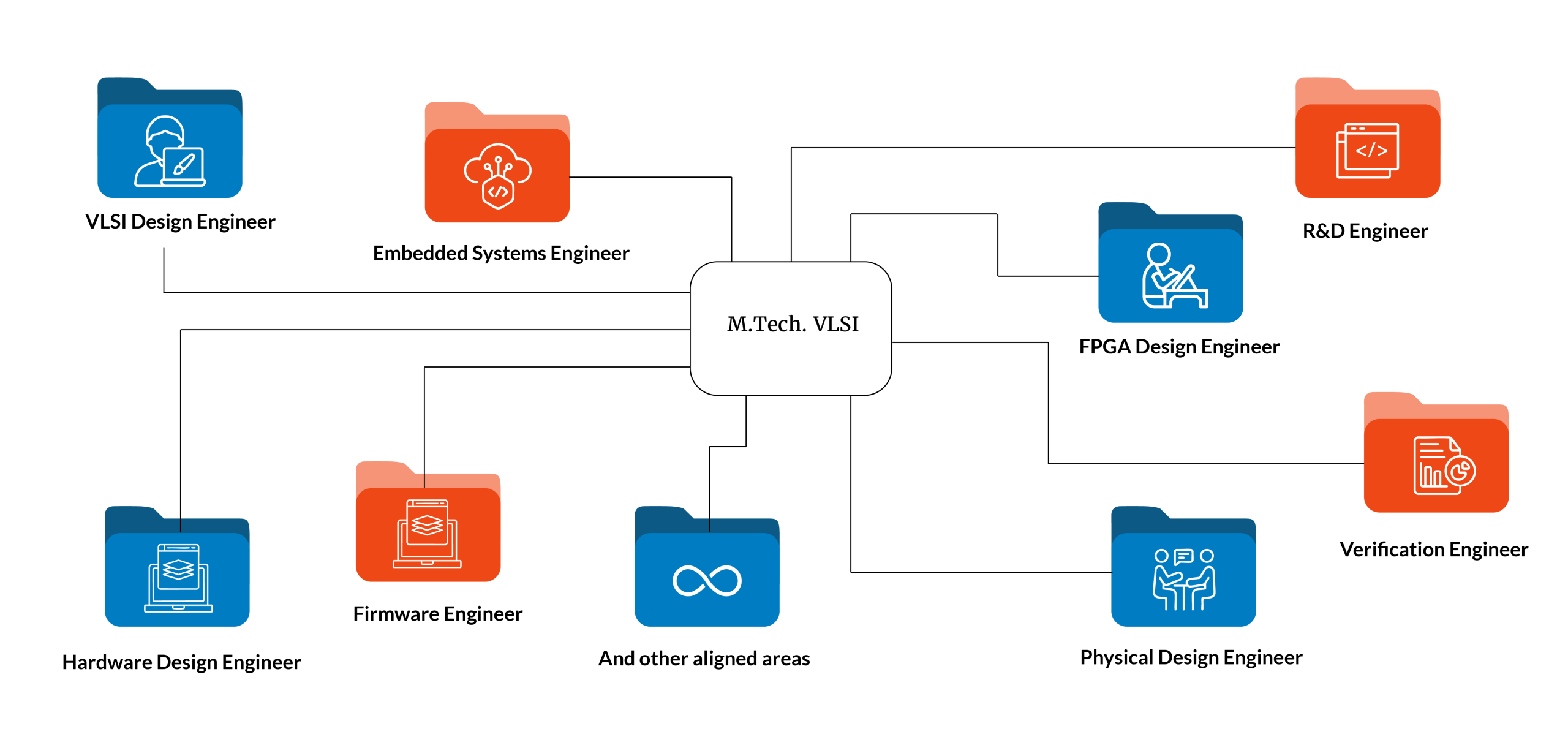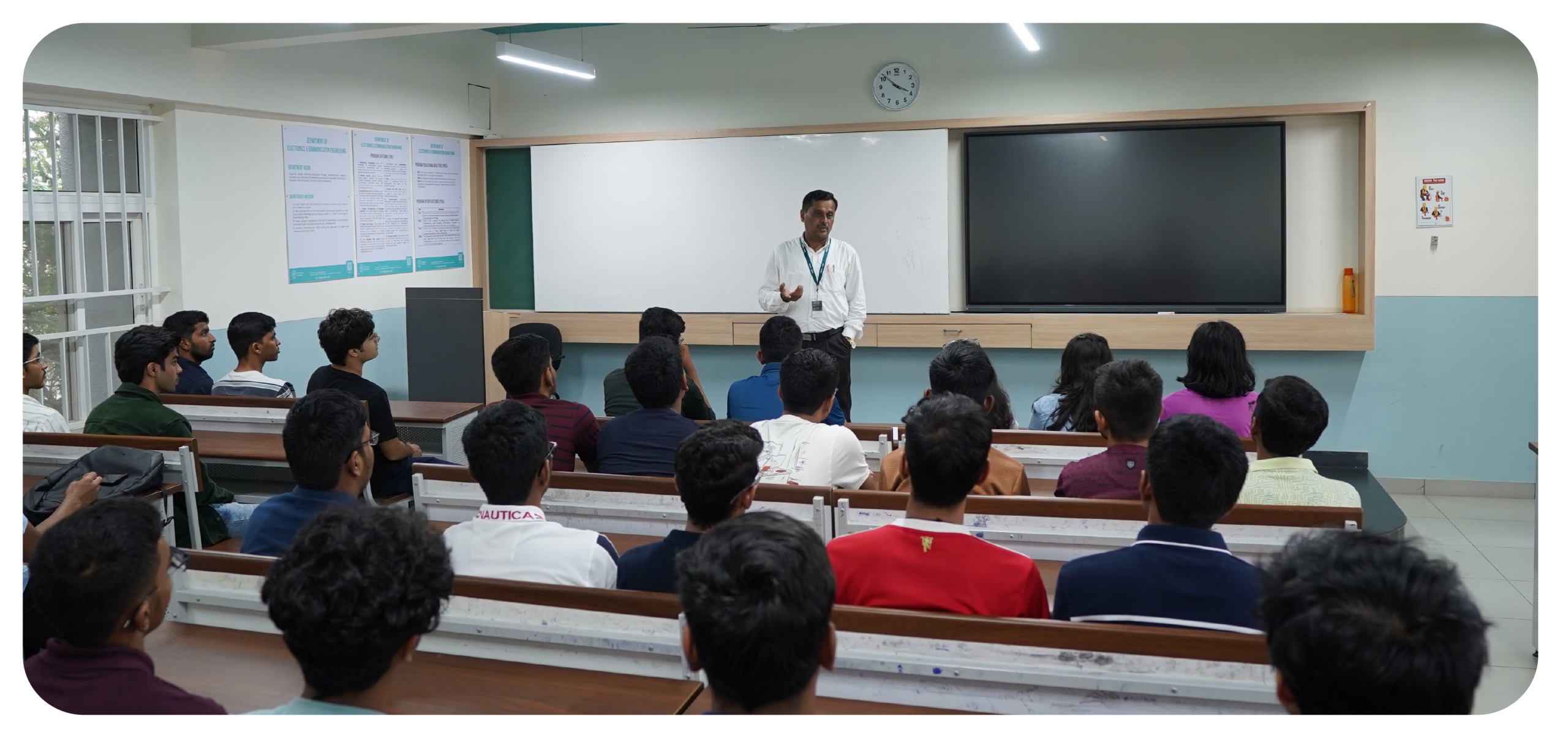M.Tech. In VLSI Design & Embedded Systems
- Home /
- M.tech in VLSI Design & Embedded Systems
Approved intake
36
Duration
2 Years
Accreditation
![]() NBA
NBA
Engineering
Tomorrow’s Tech
About the Programme
The M. Tech. programme in VLSI Design & Embedded Systems (VLSI and ES), established in 2005, has grown significantly and maintains a 15:1 student-teacher ratio. The programme’s curriculum, developed with industry and stakeholder feedback, emphasises interdisciplinary research, industry alignment and holistic student development through co-curricular and extra-curricular activities. Designed on Outcome-Based Education (OBE) principles, it integrates employability, innovation and research, with mandatory projects, internships and industrial visits.
Graduates secure attractive compensation packages in various sectors. The department also features a VTU-affiliated R&D centre, engaged in application-oriented research funded by organisations like DRDO and ISRO, and has 45 Ph.D. students. It is the lead department for the Centre of Excellence in Microelectronics and holds MOUs with major companies like Qualcomm, Texas Instruments and Samsung Semiconductors, ensuring strong placement opportunities.
The M. Tech. programme in VLSI Design & Embedded Systems (VLSI and ES), established in 2005, has grown significantly and maintains a 15:1 student-teacher ratio. The programme’s curriculum, developed with industry and stakeholder feedback, emphasises interdisciplinary research, industry alignment and holistic student development through co-curricular and extra-curricular activities. Designed on Outcome-Based Education (OBE) principles, it integrates employability, innovation and research, with mandatory projects, internships and industrial visits.
Graduates secure attractive compensation packages in various sectors. The department also features a VTU-affiliated R&D centre, engaged in application-oriented research funded by organisations like DRDO and ISRO, and has 45 Ph.D. students. It is the lead department for the Centre of Excellence in Microelectronics and holds MOUs with major companies like Qualcomm, Texas Instruments and Samsung Semiconductors, ensuring strong placement opportunities.
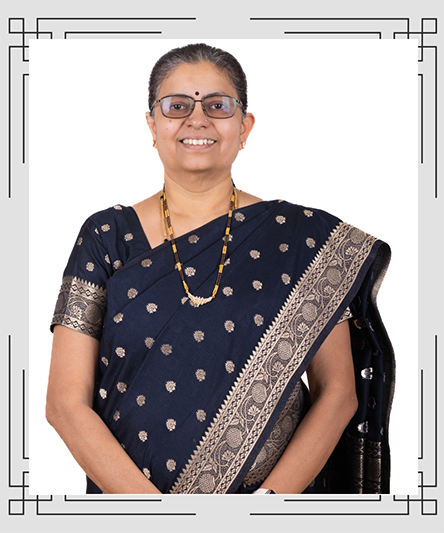
Message FROM
DEAN PG STUDIES (CIRCUIT PROGRAMMES)
RV College of Engineering has been offering Post graduate programs since the year 1997 (MCA) and 2004 (MTech). The programs have been successful in terms of Academic outcome, Industrial Internships, Conversions to full time Placements, Higher education and Research, Accreditations with good grades (both in Tier I and II). These are an indication of RVCE’s commitment to quality and Excellence.
The curriculum is Industry oriented, with Courses on cutting edge technologies, well quipped laboratories and Centers of Excellence for Project works and research, qualified faculty mentors and technical staff to support.
There are Extra and Co-curricular activities, Innovative project clubs and International University collaborations to add value to the programs.
Come and be a part of our Master degree programs in MCA and MTech and fulfil your dreams.
Dr. K Sreelakshmi,
Professor and PG Dean (Circuit)
dean.circuit@rvce.edu.in
Placement overview
Number of companies visited
Number of offers made
Number of students selected
Average Salary
Maximum salary
*Ongoing Placement
Top Recruiters & Industry Collaborations





Placement overview
Number of companies visited
Number of offers made
Number of students selected
Average Salary
Maximum salary
More About
the department
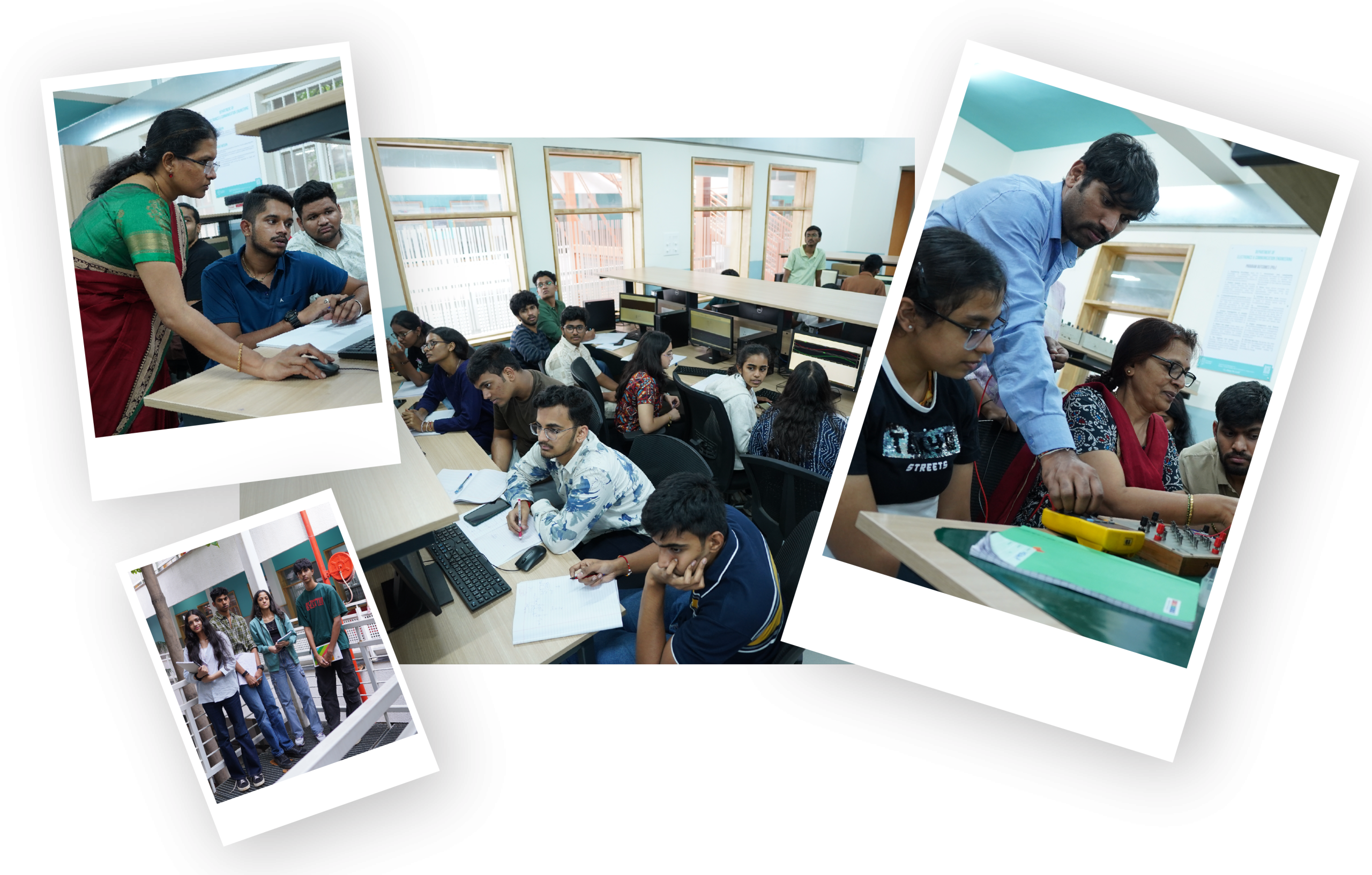
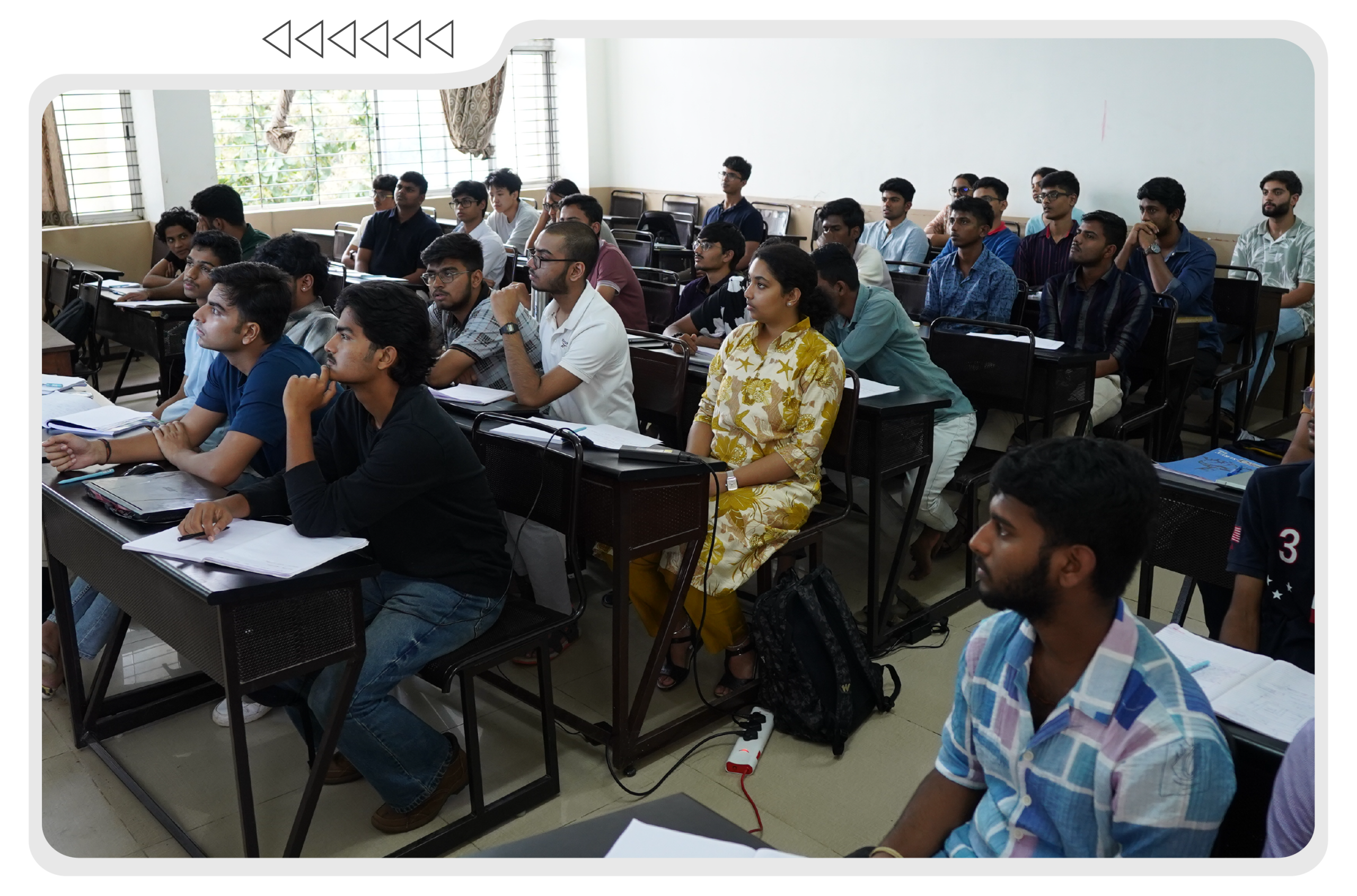
More About the department
Programme Outcomes (PO)
Programme Educational Objectives (PEOs)
PEO 1: Identify and apply appropriate Electronic Design Automation (EDA) to solve real world problems in VLSI and Embedded Systems domain to create innovative products and systems.
PEO 2: Develop managerial skill and apply appropriate approaches in the domains of VLSI design and Embedded Systems incorporating safety, sustainability and become a successful professional or an Entrepreneur in the domain.
PEO 3: Pursue career in research in VLSI Design and Embedded Systems domain through self learning and self directed on cutting edge technologies.
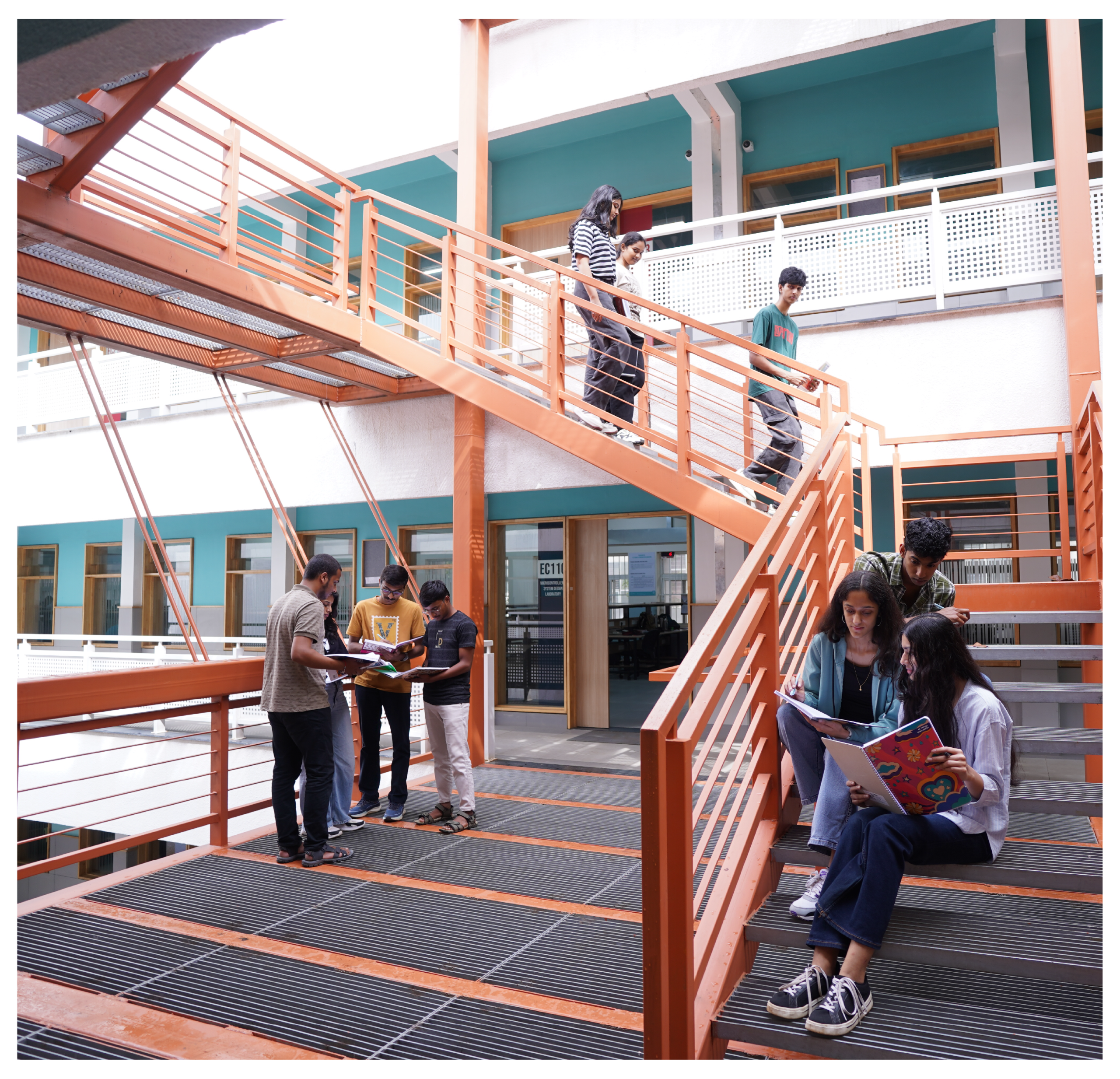

Programme Educational Objectives (PEOs)
PEO 1: Identify and apply appropriate Electronic Design Automation (EDA) to solve real world problems in VLSI and Embedded Systems domain to create innovative products and systems.
PEO 2: Develop managerial skill and apply appropriate approaches in the domains of VLSI design and Embedded Systems incorporating safety, sustainability and become a successful professional or an Entrepreneur in the domain.
PEO 3: Pursue career in research in VLSI Design and Embedded Systems domain through self learning and self directed on cutting edge technologies.
TOP CARRER OPTIONS
